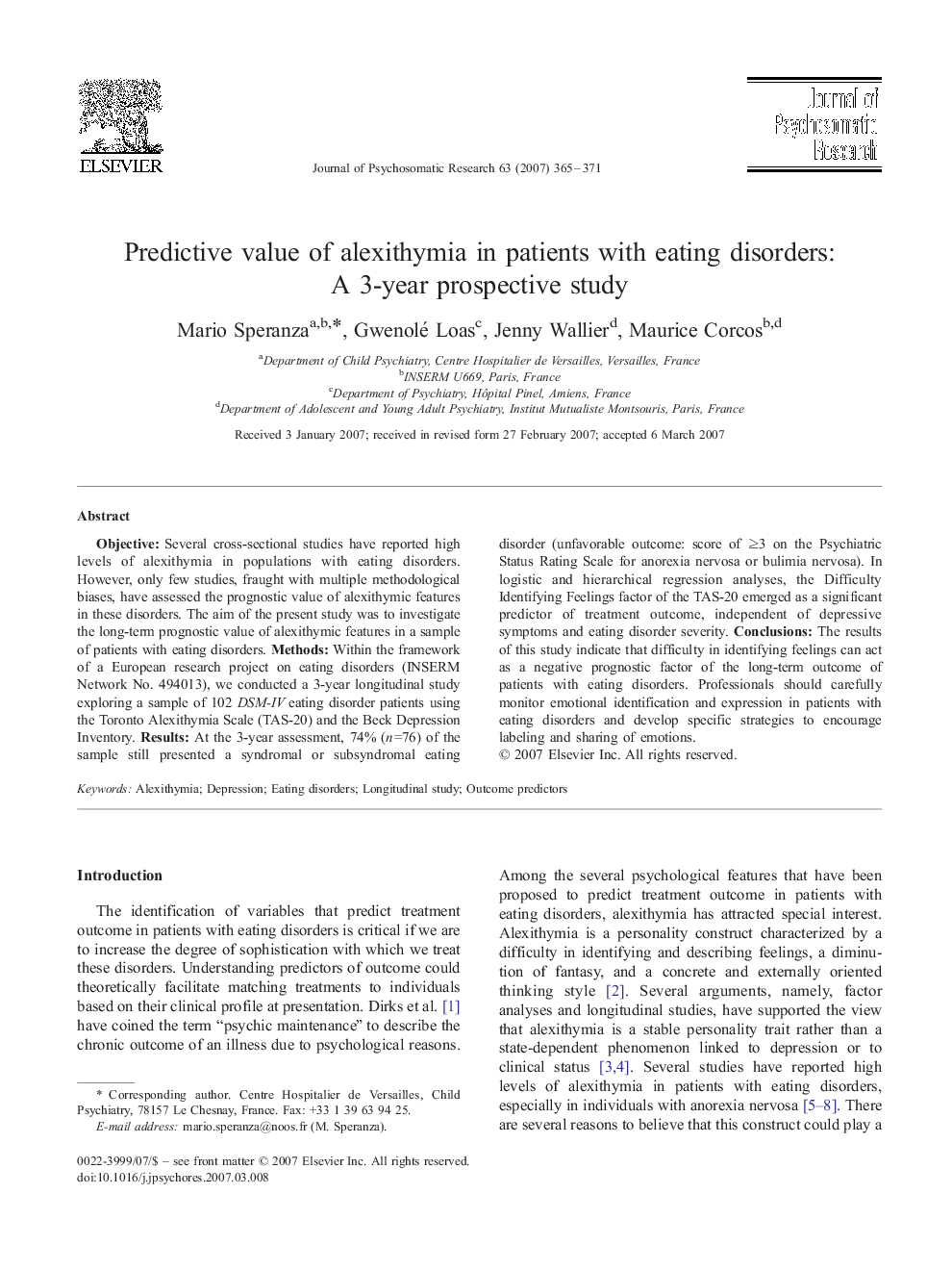| Article ID | Journal | Published Year | Pages | File Type |
|---|---|---|---|---|
| 951141 | Journal of Psychosomatic Research | 2007 | 7 Pages |
ObjectiveSeveral cross-sectional studies have reported high levels of alexithymia in populations with eating disorders. However, only few studies, fraught with multiple methodological biases, have assessed the prognostic value of alexithymic features in these disorders. The aim of the present study was to investigate the long-term prognostic value of alexithymic features in a sample of patients with eating disorders.MethodsWithin the framework of a European research project on eating disorders (INSERM Network No. 494013), we conducted a 3-year longitudinal study exploring a sample of 102 DSM-IV eating disorder patients using the Toronto Alexithymia Scale (TAS-20) and the Beck Depression Inventory.ResultsAt the 3-year assessment, 74% (n=76) of the sample still presented a syndromal or subsyndromal eating disorder (unfavorable outcome: score of ≥3 on the Psychiatric Status Rating Scale for anorexia nervosa or bulimia nervosa). In logistic and hierarchical regression analyses, the Difficulty Identifying Feelings factor of the TAS-20 emerged as a significant predictor of treatment outcome, independent of depressive symptoms and eating disorder severity.ConclusionsThe results of this study indicate that difficulty in identifying feelings can act as a negative prognostic factor of the long-term outcome of patients with eating disorders. Professionals should carefully monitor emotional identification and expression in patients with eating disorders and develop specific strategies to encourage labeling and sharing of emotions.
